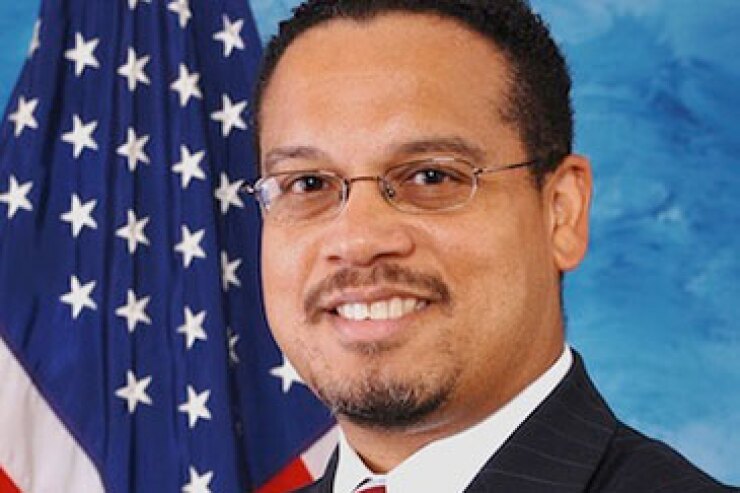
WASHINGTON – A bill introduced in the House would make municipal bonds issued by historically black colleges and universities (HBCUs) tax-exempt at the federal, state and local levels.
Rep. Keith Ellison, D-Minn., said the HBCU Investment Expansion Act (H.R. 6048), which he introduced earlier this month, would increase competition and lower prices for bonds issued by HBCUs.
A member of the House Financial Services Committee, Ellison said he offered the bill in response to a 2015 report published by Drexel University, the University of Notre Dame, Duke University and the University of California San Diego that found HBCUs often pay higher issuance fees for bonds and typically sell them at a discount.
"While HBCUs are able to raise money by issuing bonds, researchers found that these universities face higher costs compared to other universities trying to raise funds with bonds," Ellison said. "That's not right. This legislation will level the playing field and help HBCUs get the funds they need to build new dorms, labs or classrooms without additional costs or fees."
Ellison's bill, introduced on Sept. 15, was referred to the House Ways and Means Committee as well as the House Financial Services Committee. It is co-sponsored by Reps. Bobby Scott, D-Va., Maxine Waters, D-Calif., Barbara Lee, D-Calif., and Alma Adams, D-N.C.
The report by the four universities, which analyzed 4,145 tax-exempt muni issuances by 965 four-year colleges and universities (including 102 HBCUs) between 1988-2010, found that underwriters collect $1,150 more on average for every million dollars issued in the muni market by HBCUs than non-HBCUs. For typical bond deals of $35 million, the difference grows to roughly $40,000 on average, the report found.
The four-year schools all had the same bond ratings.
The researchers found the average issuance cost of a $30 million bond transaction for HBCUs was $290,000, compared to $242,000 for non-HBCUs.
The authors attributed HBCUs' inflated issuance costs partially to racial tension in the southern U.S., where many HBCUs are concentrated, making bonds harder to sell without a substantial loss in value.
There are currently a total of 107 public and private HBCUs in the U.S.
Adams' state, with ten HBCUs, is home to the most of these schools of any state in the country.
"Historically black colleges and universities, like any other institution of higher learning, should be able to efficiently invest in their schools and support their students," Adams said.
The legislation has received support from Johnny Taylor Jr., president and CEO of the Thurgood Marshall College Fund, who called the legislation "critical" to help HBCUs gain increased access to the investment market.
Cheryl Smith, senior vice president of public policy and government affairs for the United Negro College Fund, said the bill "will help redress recently revealed and grievous inequities that HBCUs face in accessing financing in the private bond markets for critical infrastructure projects."
HBCUs are defined under The Higher Education Act of 1965 as any historically black college or university established prior to 1964 and accredited by a nationally recognized accrediting agency or association, whose principal mission is the education of black Americans.





